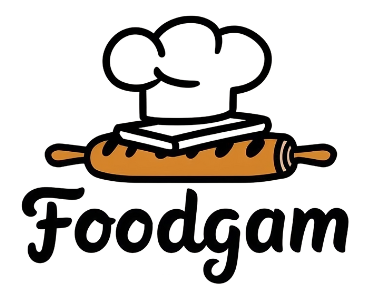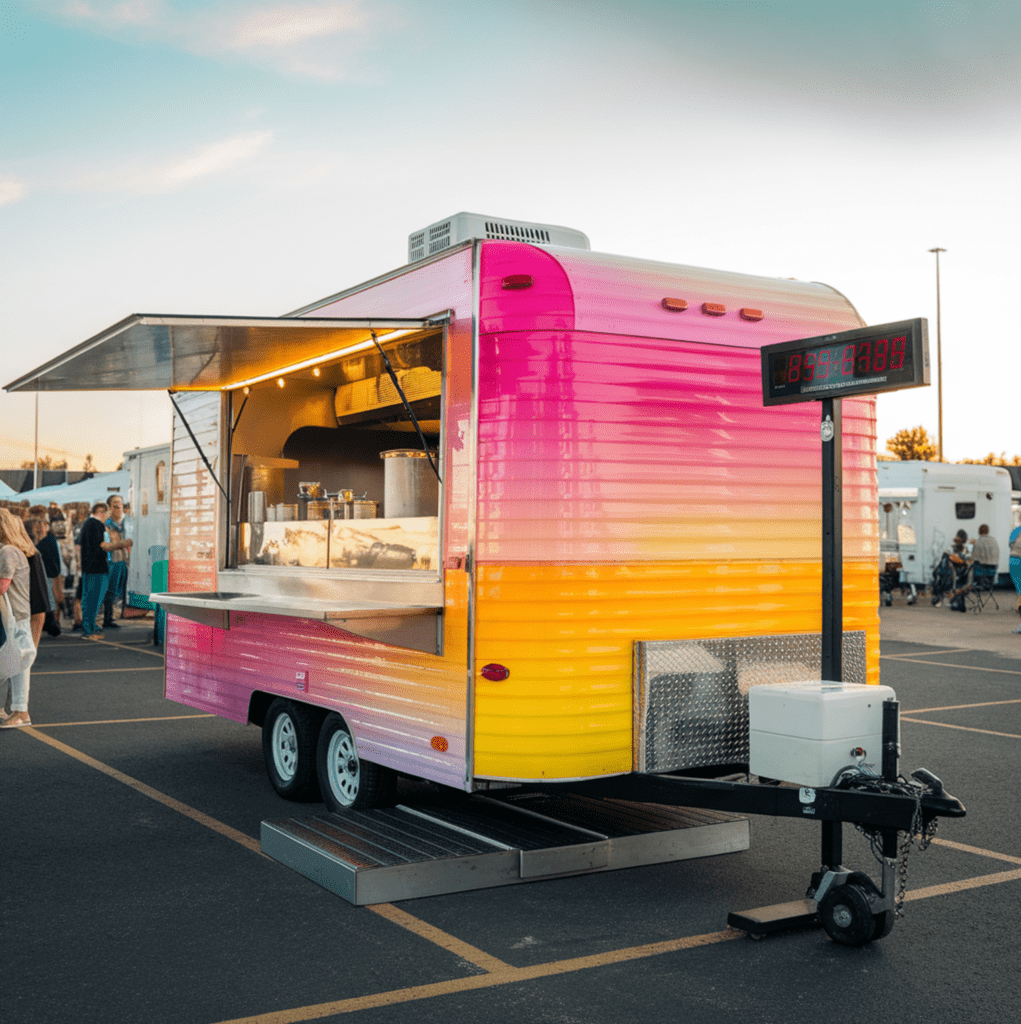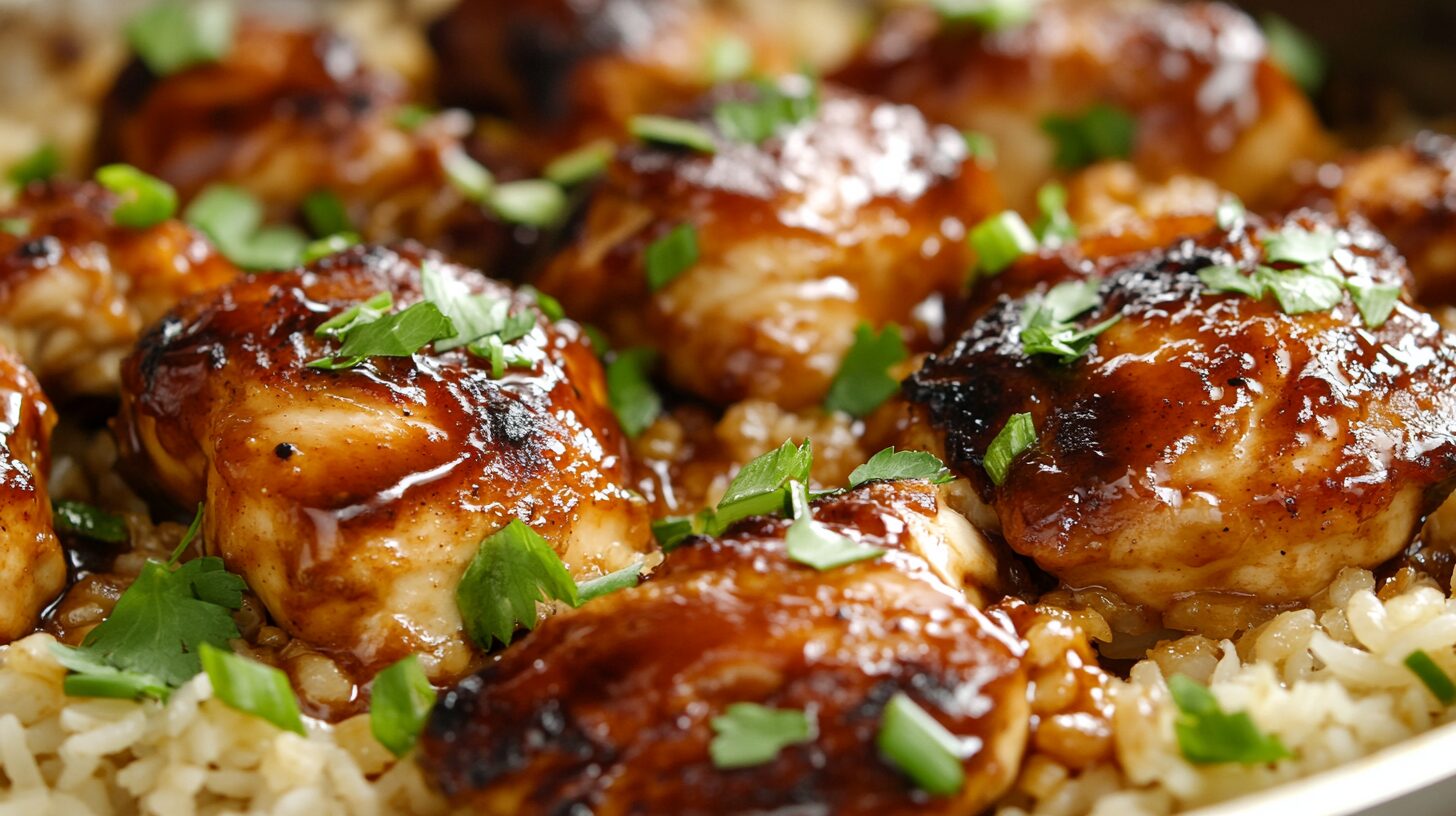Introduction
Food trailers have become a popular way for entrepreneurs to break into the culinary industry. In fact, they offer a cost-effective, flexible, and exciting avenue for serving delicious meals on the go. If you’ve ever wondered, “How much does a food trailer cost?”, you’re not alone. Above all, understanding the costs involved is key to starting a successful business.
This comprehensive guide will not only break down the financial aspects of food trailers but also provide tips, step-by-step instructions, and creative variations to help you make informed decisions. In addition, we’ll answer frequently asked questions and offer practical advice to get you started.
How Much Does a Food Trailer Cost?
The cost of a food trailer can range significantly, depending on several factors. For example, basic models cost much less than fully equipped or customized trailers. In short, prices typically range from $15,000 to $100,000 or more. Understanding these categories is essential to make an informed decision, whether you are just starting your business or looking to expand your operations.
1. Basic Food Trailer Shell
- Cost: $15,000–$30,000
A basic food trailer shell provides only the structure, without any cooking appliances, storage, or equipment installed. In contrast to pre-built or custom trailers, this option is perfect for entrepreneurs who want to create a fully customized setup tailored to their specific needs. For instance, you can choose to add specific appliances, counters, or storage units that match your menu requirements.
Moreover, basic shells are often less expensive upfront, making them a cost-effective choice for those willing to invest time and effort into personalizing their trailer. However, it’s important to consider additional costs for equipment installation and compliance with local health and safety regulations. In addition, some manufacturers offer financing options, which can help spread out the costs over time.
2. Pre-Built Food Trailers with Equipment
- Cost: $50,000–$100,000+
Pre-built food trailers come equipped with all the essentials, such as cooking appliances, sinks, storage cabinets, and electrical systems. These trailers are ready to use upon delivery, saving time and effort compared to building a trailer from scratch. Consequently, they are a popular choice for entrepreneurs who want a quick start without the hassle of installations or customizations.
For example, pre-built trailers often include high-quality equipment like commercial-grade grills, fryers, and refrigerators. This setup is ideal for those serving standard menus, such as burgers, tacos, or coffee. Moreover, manufacturers often provide warranties on pre-built models, offering peace of mind regarding the reliability of the equipment.
On the other hand, pre-built trailers may not offer as much flexibility for customization. If your business requires unique features or branding, you may need to make additional modifications, which can increase costs.
3. Custom Food Trailers
- Cost: $75,000–$150,000
Custom food trailers are designed to meet your specific business needs. In fact, they are the best option for businesses that want to stand out with unique branding, layouts, or specialized equipment. For instance, if you are running a gourmet pizza business, you can install a wood-fired oven and design the interior for efficient workflow.
Above all, custom trailers allow you to create a one-of-a-kind customer experience. You can work with manufacturers to select every detail, from the exterior design and colors to the type of countertops and shelving. Additionally, these trailers are built with your local health and safety codes in mind, ensuring compliance from the start.
However, the high level of customization comes at a premium. Not only are they more expensive, but the manufacturing process can also take longer compared to pre-built models. Therefore, they are best suited for established businesses or those with a clear vision and budget for their mobile food operation.
4. Used Food Trailers
- Cost: $10,000–$50,000
Used food trailers offer an affordable entry point for entrepreneurs on a tight budget. These trailers often come equipped with basic appliances and may have been previously used for similar businesses. In addition, they can save you a significant amount of money compared to buying a new trailer.
For example, a second-hand trailer that already includes a refrigerator, stove, and sinks can provide a solid starting point for your business. However, it’s essential to thoroughly inspect the trailer to ensure that it meets local health and safety standards and is in good working condition.
On the other hand, used trailers may require repairs or upgrades to meet your specific needs. Consequently, the initial savings may be offset by the cost of these modifications. Additionally, warranties are typically not available for used trailers, so you’ll need to budget for potential maintenance expenses.
In short, used trailers are a great option for those who want to minimize upfront costs but are prepared to invest time and effort into ensuring the trailer is fully operational and compliant.
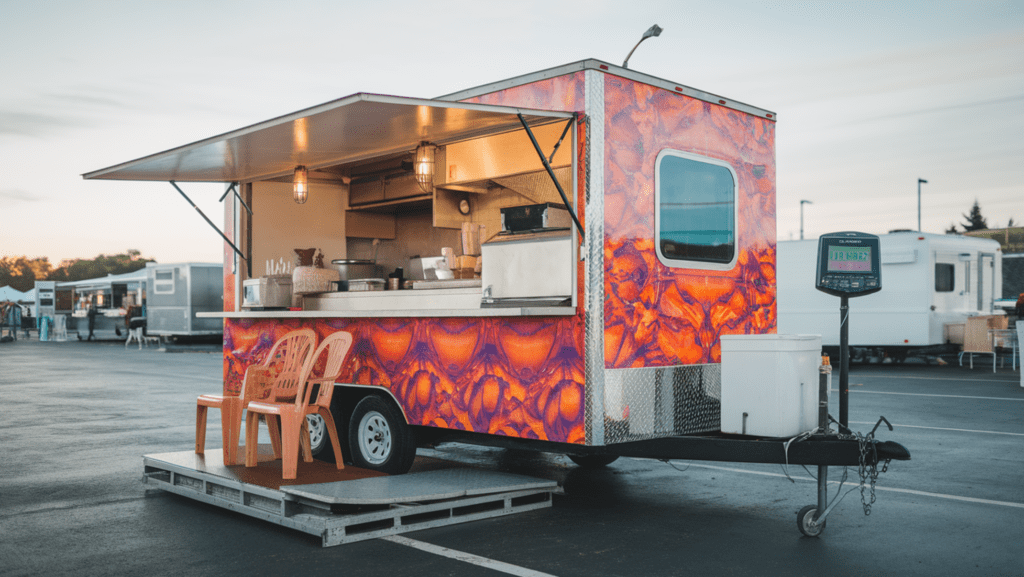
Creative Variations for Food Trailer Businesses
When it comes to food trailers, creativity can set you apart from the competition. Moreover, thinking outside the box can attract a loyal customer base and boost your chances of success. Whether it’s your menu, services, or partnerships, adopting creative strategies can help you stand out in the bustling food trailer market.
1. Niche Menus
Focusing on a specific cuisine or specialty is a surefire way to carve out a unique identity for your food trailer. For example, serving vegan tacos, gourmet coffee, or fusion dishes can make your business stand out among generic food trailers. Not only does this attract niche audiences, but it also builds a dedicated following of customers who love your specialized offerings.
To explore how to tailor your food trailer to niche audiences, check out our detailed guide on how to make a food trailer, which provides insights into creating a trailer that matches your culinary vision.
2. Seasonal Themes
In addition, incorporating seasonal themes into your menu is a fantastic way to keep customers coming back. For instance, serving hot cocoa, roasted chestnuts, or hearty soups in winter can align your offerings with the colder months. Similarly, in summer, refreshing items like lemonade, smoothies, or gourmet ice cream can attract customers looking to cool off.
Adjusting your food trailer for different seasons can enhance customer engagement and boost sales. Learn more about the logistics and adjustments involved in seasonal menus in our article on how to build a food trailer.
3. Mobile Catering
Not only that, mobile catering is an excellent way to diversify your income stream. By offering catering services for private events such as weddings, corporate functions, or festivals, you can tap into a new revenue source beyond your daily operations.
Mobile catering also allows you to showcase your brand to larger audiences and build relationships with event organizers, which can lead to repeat business. For a deeper understanding of how to design your trailer to accommodate catering needs, check out our guide on how much does a food trailer weigh, where we discuss the importance of trailer size and mobility.
4. Collaborations
Partnering with local farms, businesses, or other food trailers can enhance your brand’s appeal. In fact, collaborations are a great way to promote sustainability and build community relationships. For instance, sourcing ingredients from local farms not only supports the local economy but also gives your menu a fresh and authentic touch.
Moreover, collaborating with complementary businesses, such as a bakery for desserts or a coffee roaster for beverages, can expand your menu and attract a wider customer base. If you’re considering how to integrate these partnerships into your operations, check out our article on how much does a food trailer cost for insights on budgeting and planning.
By incorporating these creative variations into your food trailer business, you can create a unique and memorable experience for your customers. For more ideas on launching and managing your food trailer, visit our comprehensive resource on food trailers. Don’t forget to explore how a health food store makes trail mix for inspiration on adding healthy options to your menu.
In conclusion, combining niche menus, seasonal themes, mobile catering, and strategic collaborations can help you thrive in the competitive food trailer industry.
Startup Costs for Food Trailers
Starting a food trailer business involves more than just purchasing a trailer. In fact, it requires careful planning and budgeting for various expenses.
1. Trailer Purchase
- Budget: $15,000–$100,000
2. Equipment and Installation
- Budget: $10,000–$50,000
3. Initial Inventory
- Budget: $1,000–$5,000
4. Licensing and Permits
- Budget: $500–$3,000
5. Insurance
- Budget: $1,000–$4,000 annually
6. Marketing and Branding
- Budget: $1,000–$10,000
7. Miscellaneous Costs
- Budget: $500–$2,000 (utilities, repairs, etc.)
Creative Variations for Food Trailer Businesses
When it comes to food trailers, creativity can set you apart from the competition. Moreover, it can attract a loyal customer base.
1. Niche Menus
Focus on a specific cuisine or specialty. For example, vegan tacos or gourmet coffee can make your business stand out.
2. Seasonal Themes
In addition, adjust your menu based on the season. For instance, serve hot cocoa in winter and lemonade in summer.
3. Mobile Catering
Not only that, mobile catering for events like weddings or corporate functions can diversify your income.
4. Collaborations
Partnering with local farms or businesses can enhance your brand’s appeal. In fact, it’s a great way to promote sustainability.
FAQs About Food Trailers
How Much Does It Cost to Build a Food Trailer?
Building a food trailer from scratch typically costs $20,000–$60,000, depending on materials and equipment. As a result, this option is ideal for hands-on entrepreneurs.
What Are the Startup Costs for a Food Truck?
Startup costs for a food truck, including a trailer, range from $50,000 to $200,000. Moreover, these costs include equipment, permits, and branding.
How Profitable Is a Food Truck?
Profit margins average 10–20%, with potential annual profits of $50,000–$200,000. In addition, success depends on factors like location and operations.
How Much Does a Food Truck Cost Per Month?
Monthly expenses, including food supplies, fuel, insurance, and maintenance, average $2,000–$5,000. Consequently, budgeting is essential for managing recurring costs.
Tips for Reducing Food Trailer Costs
If you’re on a tight budget, there are several ways to reduce costs. For example, consider buying used equipment or negotiating with suppliers.
- Buy Used Equipment: Look for high-quality, pre-owned items to save money.
- Negotiate with Vendors: Many suppliers offer discounts for bulk purchases.
- DIY Branding: Design your trailer’s wrap and signage to save on professional fees.
- Start Small: Begin with a smaller trailer and scale up as your business grows.
Conclusion
In conclusion, investing in a food trailer is a rewarding venture, offering flexibility and a unique culinary platform. In addition, understanding the costs and planning accordingly can set you up for success. For example, knowing what to budget for equipment and permits ensures smoother operations.
Above all, with careful planning and creativity, your mobile food business can thrive. Not only that, but it can also bring your culinary dreams to life. Are you ready to get started? Share your thoughts or questions in the comments below!

Chocolate Guinness Cake with Baileys Buttercream

Ultimate Dolly Parton Butterscotch Pie: 5 Sweet Reasons to Try This Classic Dessert
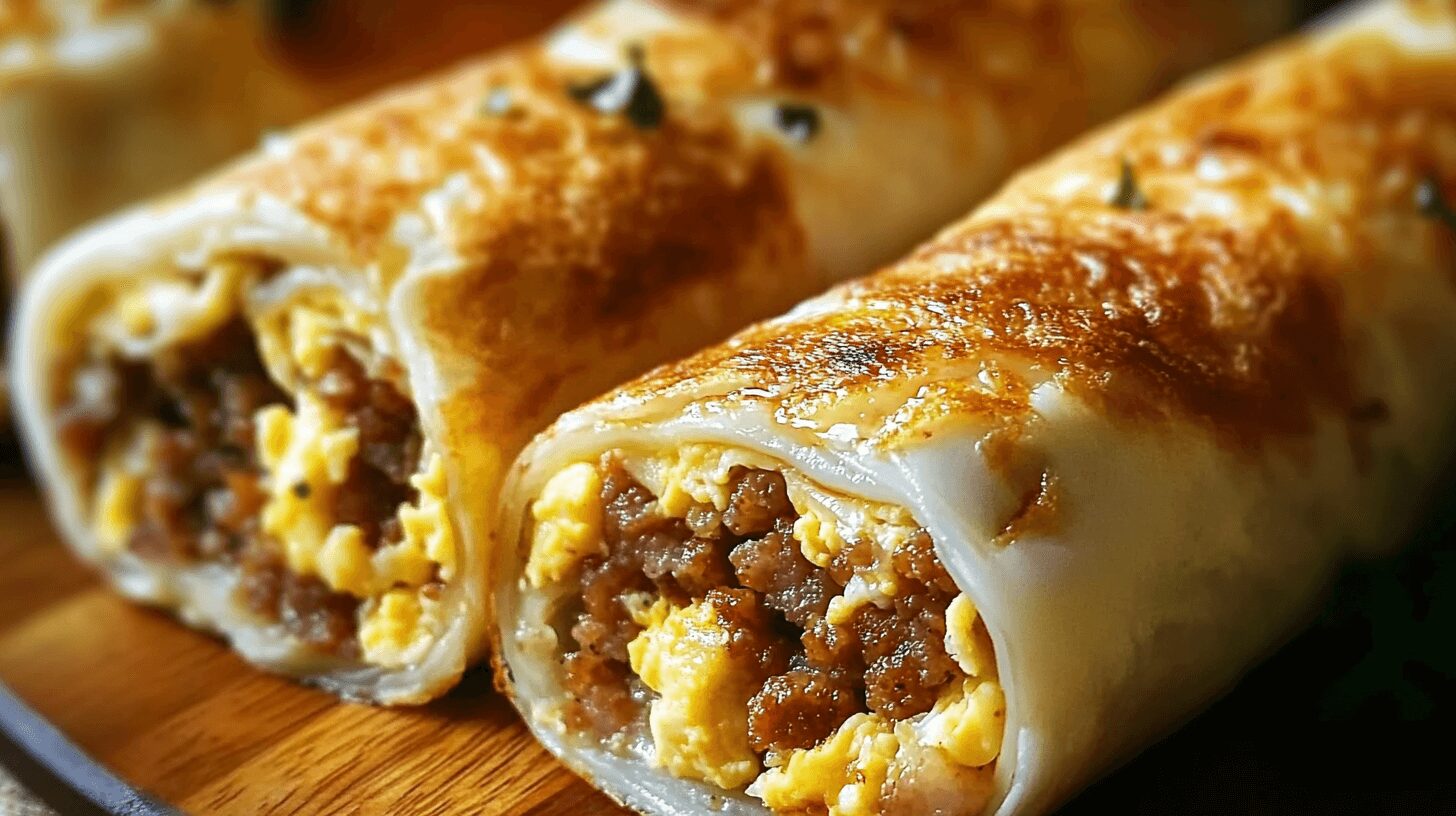
5-Minute Sausage Egg and Cheese Breakfast Roll-Ups: The Perfect Morning Delight
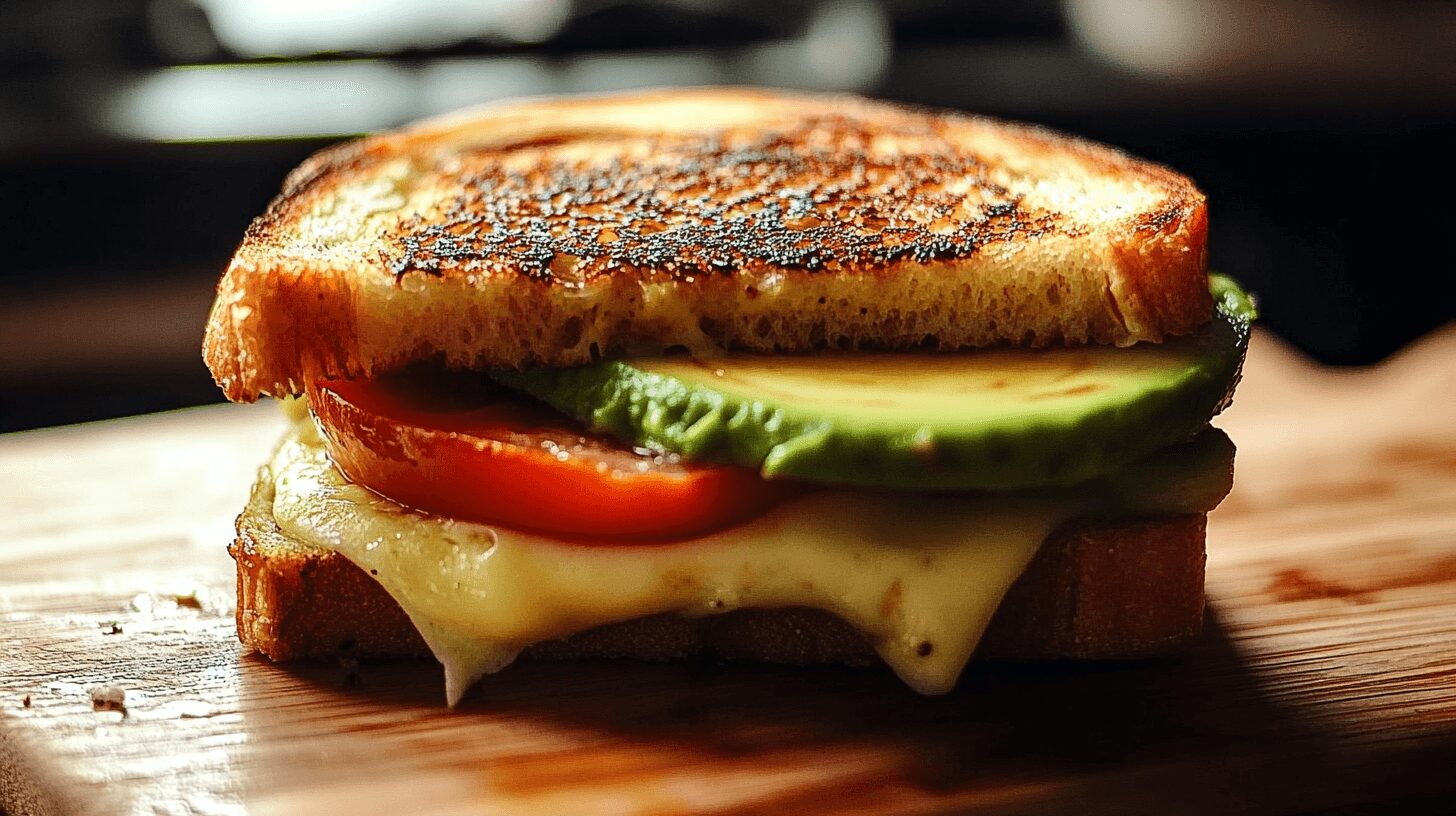
Healthy Avocado Grilled Cheese: 5 Reasons to Try This Nutritious Twist on a Classic
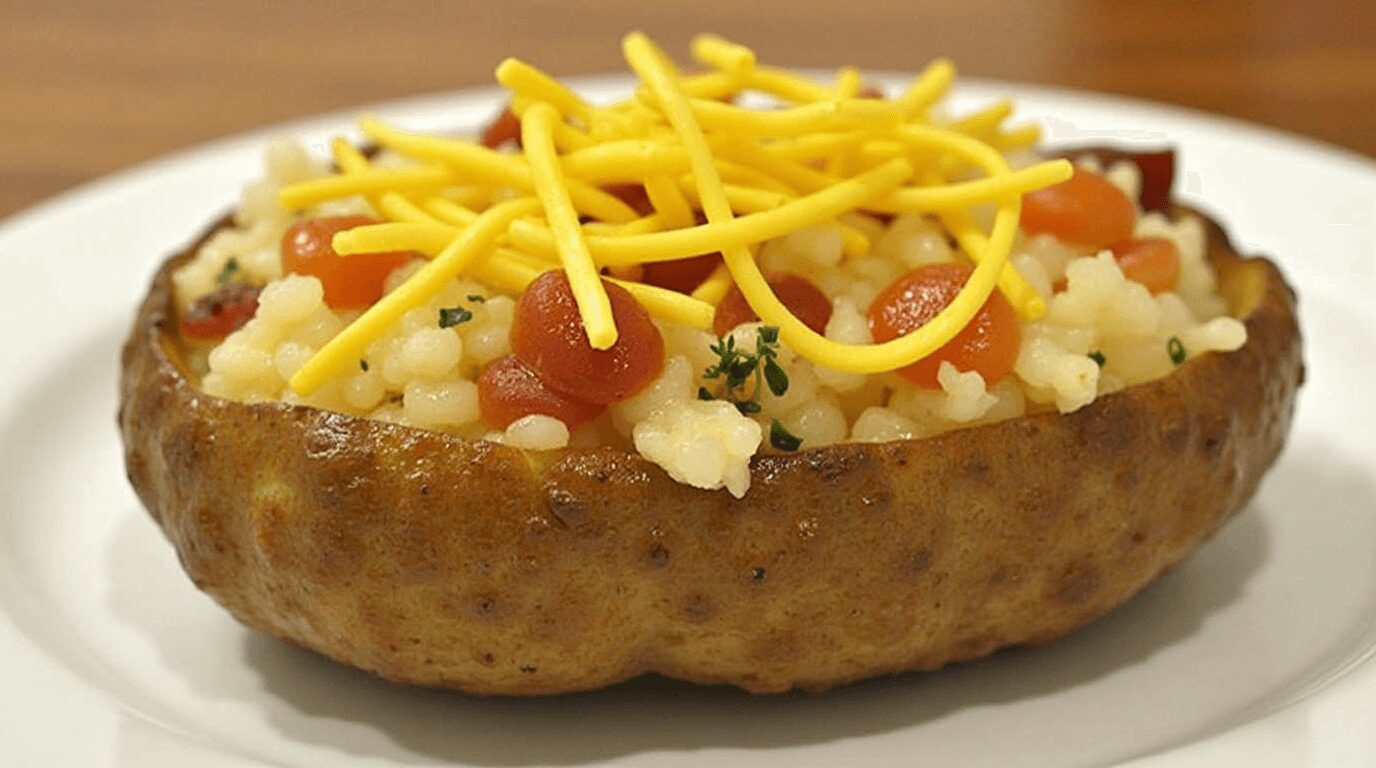
7 Reasons to Love Smothered Potatoes: A Delicious and Nutritious Comfort Food

Greek Yogurt Chia Pudding: 5 Reasons This Simple, Healthy Treat is a Game-Changer

